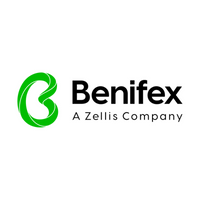Why social responsibility is now just as important as pay to attract new workers

While HR and recruiters were focussed on how to attract Millennials, they joined the workforce and are now propelling it forward. The following generation, Gen Z – who have garnered the moniker ‘Generation K’ from renowned economist Noreena Hertz – are the new Millennials of the workplace.
Honesty, sustainability, equality
Hertz has studied the upcoming generation, exploring their rigorous childhood experiences and how this impacts their expectations from employers. This generation has grown up surrounded by an influx of technology, globalisation, economic uncertainty and the reality of climate change. Whether it’s protesting inequality or working towards zero food waste, Gen Z/’K’ value honesty, sustainability and equality above all.
All of these factors are crucial when recruiting from and building employee experiences for this generation, but none more important than the desire for transparency. In fact, this is more than a desire – it is a demand; an imperative.
“Young employees just entering – or about to enter – the workforce are typically attracted to a company’s social responsibility over its profitability. According to research by Professor Noreena Hertz, only 6% of ‘Generation K’ – those aged between 15 and 25 – trust big businesses. They are not looking to work for traditional large companies, but those driven by purpose, social conscience, and sustainability.” – The Benefits of sustainability in business
Take note from other industries
This generation are calling for conscious consumerism, enabled through public transparency. In fact, it is so pivotal to their values that consumer corporations discovered while marketing to Gen Z-ers that their values are the main factor in making purchasing decisions:
- How the purchase affects a broader community e.g. manufacturing standards, employee pay and welfare
- How the purchase impacts the planet e.g. animal welfare, resource management and sustainability
As a result of these findings, companies began to rebrand products, emphasising their ethical production, organic ingredients and sustainable resourcing. Put simply, they started to be honest on their labels – and, where needed, improve the ethics of their production. The success of this transparency can now be seen with global brands like Lush or Ben & Jerry’s, who are now famous for their ethical values.
These purchasing decisions carry through to choosing a workplace, too. In order to recruit and retain Gen Z employees, organisations must be honest on their employer branding.
Be honest about data, and how it’s being used
Unlike Millennials, who remember the early internet age of online ‘stranger danger’, Gen Z have grown up with the proliferation of social media and the rise of Uber, Tinder and Deliveroo; getting in strangers’ cars or giving out your address on an app has become normal.
While Gen Z may be more willing to give up their personal information, they also have less tolerance for advertising and will be the first to hit ‘unsubscribe’. They have grown up knowing just what can be hidden in 100 pages of Ts&Cs. This means it’s more important than ever that employers are honest with their people about when, where and how their data is being used.
Give your employees a culture to rally behind
Making a public pledge to champion change has never been more important. Huge brands like Gillette and Always are being vocal about gender inequality, Converse are preaching LGBTQ+ rights and IKEA are sharing updates on their sustainability.
Whether you’re attracting employees or customers, Generation Z are looking for companies who share their values, and 81% say it’s important for organisations to take a public stand on social and political issues. So, establish your mission statement, focus on how it reflects those values, and make it integral to everything you do as a business.
But bear in mind, Gen Z will be the first to call you out on shallow words and hollow promises that don’t ring true throughout the business. Ensure these values are present in every stage of recruitment and employment. Social responsibility, whatever form that takes for your business, cannot be something purely for packaging.
The good, the bad, and the ugly
Without fail, when we ask Benefex employees what they appreciate about working here, one of the most frequent comments is “the transparency”. With consistent monthly updates, all employees (regardless of job role or length-of-service) are given open information about progression of the business, whether that’s a customer update, product release, or event.
What stands out most, especially for younger employees, is that – when necessary – we get told about our challenges too. Our updates share the entire picture, not just the shiny parts. This means everyone understands their role in the wider business and is aligned with strategy and priorities, which provides a greater sense of self-motivation and camaraderie.
Own up to your mistakes (including unconscious bias)
We’ve discussed sharing the full picture, good and bad, with your employees. We’ve discussed showing them you are championing their issues. But in order to truly prove your culture of transparency, you need to do both at once.
Now, no company is perfect, especially when scrutinised under a lens of corporate social responsibility – whether it’s unsustainable production practices or a widely homogeneous workforce, every organisation has its areas for improvement. This may seem counterintuitive for companies who aren’t used to sharing the less polished side of business with employees, but as we’ve seen, Gen Z appreciate the honesty that comes with being truly candid.
If you as a business are transparent about your flaws, and things you are striving to improve, your employees won’t be angry; quite the opposite, they’ll respect, trust and value you more for the honesty. What’s more, they can then help to guide you on your journey of wider company self-improvement.
This article is provided by Benefex.
Supplied by REBA Associate Member, Benifex
The home of award-winning employee benefits, reward, recognition, & communications.







